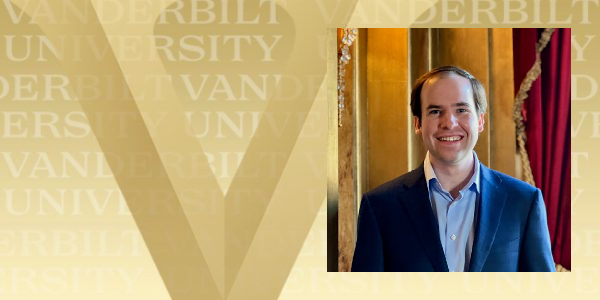From nanoscale to expanding musical creativity, 13 innovative projects across seven colleges and schools have been selected for the spring 2024 Seeding Success internal grants, which highlight Vanderbilt’s commitment to advancing scientific discovery and technological innovation.
Seeding Success Grants, which began in 2022, support new work or research directions with strong potential for impact and external funding. The Office of the Vice Provost for Research and Innovation, which manages the grant through Research Development and Support, announced the recipient list on May 31.
This year’s cycle was highly competitive, with 29 applications. All applicants receive tailored feedback from reviewers, regardless of whether their proposals are funded.
“These projects exemplify the purpose of the Seeding Success Grant, namely empowering faculty to undertake new directions in their research,” said Vice Provost for Research and Innovation Padma Raghavan. “I am deeply appreciative of the Seeding Success review committee for their effort in selecting the awardees and providing thoughtful feedback on all of the proposals.”
The 13 awardees span the diverse research landscape at Vanderbilt:




- Eric Barth, professor of mechanical engineering, School of Engineering: “Enabling Unprecedented Control Dexterity for Soft Robots”
- Wenbiao Chen, professor of molecular physiology and biophysics, School of Medicine Basic Sciences: “Molecular mechanism of alpha-cell hyperplasia-stimulated delta-cell proliferation”
- Christos Constantinidis, professor of biomedical engineering, School of Engineering: “Recording single neuron activity in the human cortex”
- Larisa DeSantis, associate professor of biological sciences, College of Arts and Science: “Carnivoran adaptive responses to late Pleistocene extinctions and anthropogenic impacts”




- Xiaoguang Dong, assistant professor of mechanical engineering, School of Engineering: “Wirelessly Actuated Ciliary Airway Stent for Excessive Mucus Removal”
- Vivian Gama, associate professor of cell & developmental biology, School of Medicine Basic Sciences: “Mitochondrial fission defects drive disruptive neurogenesis in the rare disease EMPF1”
- Joanne Golann, associate professor of leadership, policy and organizations, Peabody College: “Reimagining the Child Welfare System from the Perspectives of Youth”
- Maria Jorge, associate professor of earth and environmental sciences, College of Arts and Science: “From tapirs to microbes: effects of large herbivores on plant and soil properties in a Tropical Forest”





- Noam Lupu, associate professor of political science, College of Arts and Science: “Extending Research on Democratic Attitudes at Vanderbilt by Securing the Comparative Study of Electoral Systems (CSES) Project”
- Chorong Park, assistant professor of nursing, School of Nursing: “Refinement of a ‘Sit Less’ Program Leveraging Fitbit Tracking, Smart Water Bottles, and Tailored Text Messages in Type 2 Diabetes: a Randomized Control Trial”
- Graham Reside, assistant professor of the practice of ethics, Divinity School: “Accountability Beyond Punishment: A Community-Engaged Exploration of Religious Resources for Repairing Harm Without Incarceration”
- Douglas Shadle, associate professor of music, Blair School of Music: “Expanding the Limits of Musical Creativity”
- Sharon Weiss, professor of electrical engineering, School of Engineering: “Energy Transduction at the Nanoscale Enabled by Bowtie Photonic Crystals”
Seeding Success has proven to be a catalyst for Vanderbilt researchers, enabling them to transform their innovative ideas into impactful projects with external funding. For example:
- Marcelo Disconzi, associate professor of mathematics, who previously received a Seeding Success Grant, was awarded a $260,000 grant from the federal Office of Nuclear Physics in November for his project, “Theoretical and Numerical Investigation of First-Order Causal Relativistic Viscous Hydrodynamics with Applications,” exploring the unique behavior of relativistic fluids in nuclear physics and astrophysics.
- David Hyde, an assistant professor of computer science, also benefited from the Seeding Success initiative with his project, ADVISER—a software platform designed to democratize cloud computing for researchers—which secured $400,000 in NSF support last year.
Both examples illustrate how the Seeding Success program can spark groundbreaking ideas, drive innovation and underscore the program’s ability to support advanced research with real-world applications.
Applications for the fall 2024 cycle are due Sept. 18. For more information and to apply, visit the Seeding Success Grant page.



